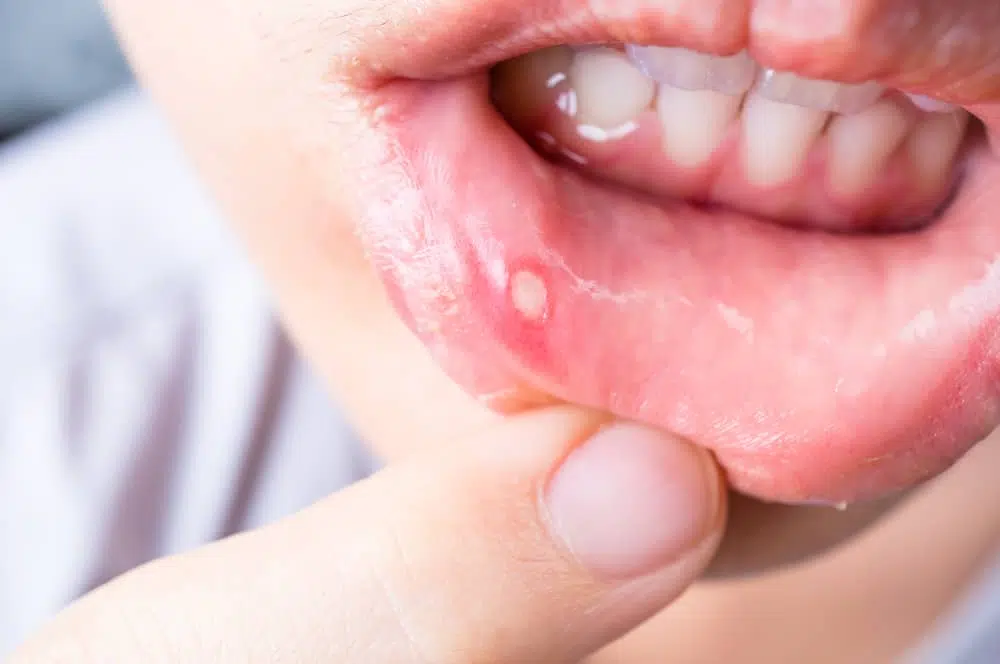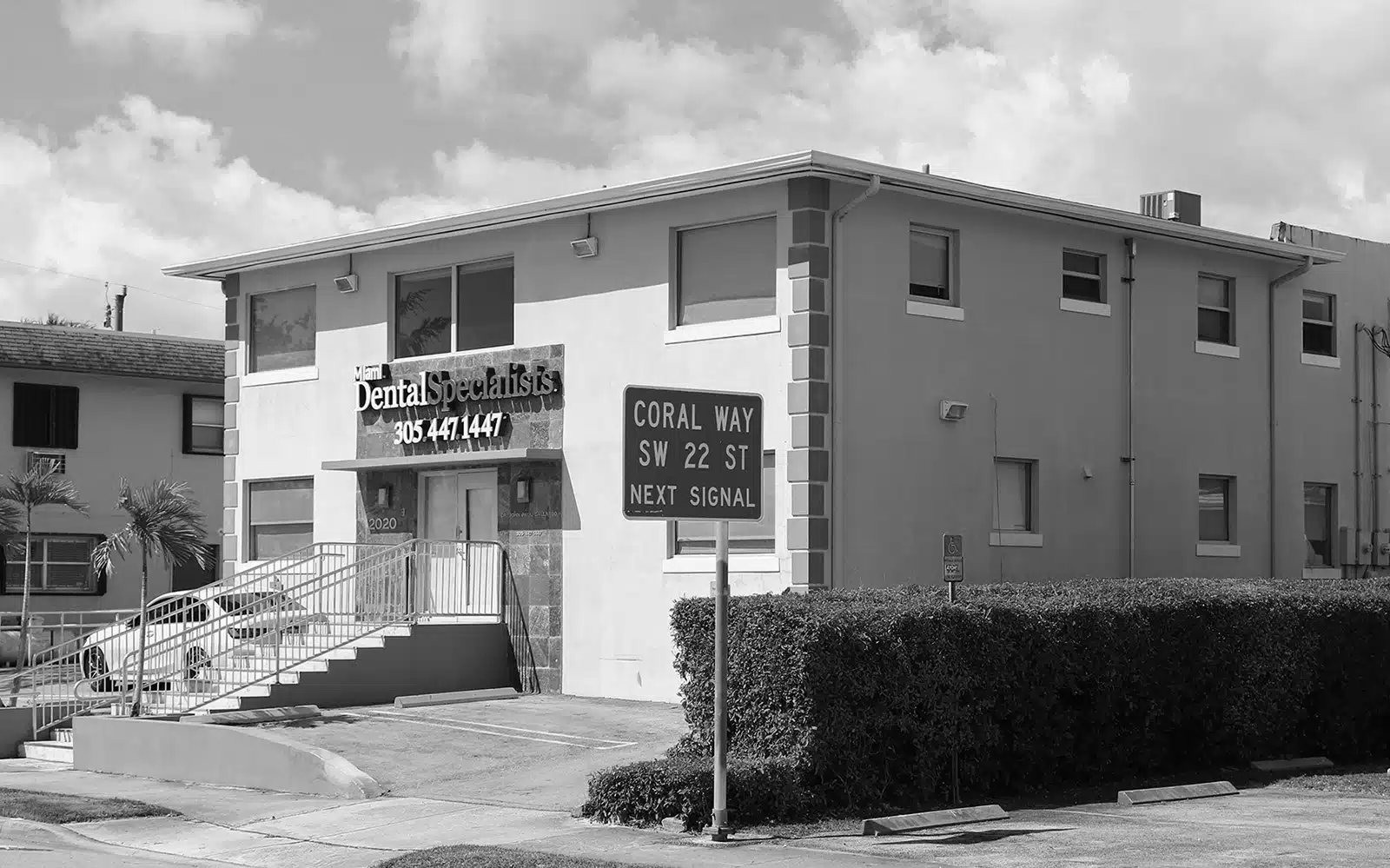
Have you ever been stopped mid-bite by a sharp sting in your mouth? That small but mighty pain is likely a canker sore, and if you’re dealing with one right now, you’re probably wondering how to get rid of it—fast. These pesky ulcers can turn everyday eating and speaking into an uncomfortable chore.
Luckily, there are several ways to ease the discomfort and speed up healing. From home remedies to professional treatments, understanding your options is key. Keep reading to discover which method might be right for you—and how to avoid these mouth ulcers in the future.
Can You Pop a Canker Sore?
No, you should never try to pop a canker sore. Unlike pimples or blisters, canker sores are not filled with pus or fluid that can be drained. Attempting to pop one can cause further irritation, introduce bacteria, and delay healing. Instead of speeding up the recovery process, you’ll only worsen the inflammation and pain. The best approach is to treat canker sores gently and support your body’s natural healing process. Let’s explore some of the best methods to do just that.
Home Remedies for Canker Sores
If you’re looking for fast relief without a trip to the pharmacy, home remedies can be incredibly effective at easing the pain and inflammation caused by canker sores. While they won’t provide an instant cure, these methods can support your body’s natural healing process and make the sore far less bothersome. Below are some of the most popular and accessible treatments you can try at home, many using items you already have in your kitchen or bathroom.
Salt Water / Soda Rinse
One of the easiest and most effective ways to ease canker sore discomfort is by rinsing your mouth with a salt water or baking soda solution. Both substances have natural antiseptic and anti-inflammatory properties that can help reduce pain and promote healing. Simply dissolve a teaspoon of salt or baking soda in a cup of warm water, swish it gently for 30 seconds, then spit it out. Repeat this a few times daily to cleanse the sore and speed up recovery.
Numbing Gels/Ointments
Over-the-counter numbing gels and ointments containing ingredients like benzocaine or lidocaine can provide immediate pain relief by desensitizing the area around the canker sore. These products form a protective barrier over the ulcer, shielding it from irritation while you eat or talk. Apply a small amount directly to the sore with a clean fingertip or cotton swab up to four times a day, following package directions. While they don’t speed up healing, they make the wait much more bearable.
Cold Compress
Applying a cold compress or sucking on ice chips can help numb the area and reduce inflammation, offering temporary relief from canker sore pain. The cold temperature constricts blood vessels and decreases swelling, which can make it easier to eat, talk, and go about your day. You can use a clean cloth-wrapped ice pack applied to the outside of your cheek or gently hold ice chips inside your mouth near the sore. Just avoid direct, prolonged contact to prevent irritation.
Hydrogen Peroxide Rinse
Hydrogen peroxide is a mild antiseptic that can help clean the canker sore and reduce bacteria in your mouth, potentially speeding up the healing process. Mix equal parts of 3% hydrogen peroxide and water, and use it as a mouth rinse by swishing gently for about 30 seconds before spitting it out. Be sure not to swallow the solution. Used once or twice a day, it can help keep the sore clean and reduce the risk of secondary infection.
Aloe Vera Gel
Aloe vera gel is widely known for its soothing and healing properties, making it a great natural remedy for canker sores. It helps reduce inflammation, relieve pain, and promote faster tissue repair. Use a small amount of pure aloe vera gel (preferably from the inner leaf) and apply it directly to the sore two to three times a day. Be sure to use food-grade or medical-grade gel to avoid additives that may irritate the sensitive area.
Coconut Oil
Coconut oil is a natural anti-inflammatory and antimicrobial agent, making it a gentle yet powerful remedy for canker sores. Applying a small amount directly to the sore can help reduce pain, prevent infection, and promote faster healing. Its smooth texture also acts as a protective layer against further irritation from food or brushing. Use a clean finger or cotton swab to dab a bit of coconut oil onto the sore two to three times daily for best results.
Other Natural Remedies
Several other natural remedies may also help soothe canker sores and support healing. Honey, for example, has antimicrobial and anti-inflammatory properties and can be applied directly to the sore several times a day to reduce pain and speed healing. Milk of magnesia can help by neutralizing acids and coating the sore to protect it from irritation—just dab a small amount on the sore a few times daily. Other helpful options include chamomile tea compresses, which have calming effects, and yogurt, which may help balance oral bacteria. These remedies offer gentle, accessible ways to manage discomfort at home.

Prescription Canker Sore Treatments
When home remedies aren’t enough, prescription treatments may be necessary—especially for severe, persistent, or frequently recurring canker sores. These advanced options can help reduce inflammation, minimize pain, and shorten healing time. If over-the-counter solutions haven’t worked or your sores are interfering with daily activities, it may be time to speak to a dental professional. Below are some of the most common prescription treatments available, depending on the severity and underlying cause of your condition.
Topical Steroids
Topical corticosteroids are often the first line of prescription defense against painful canker sores. These anti-inflammatory medications help reduce redness, swelling, and irritation, allowing the sore to heal more quickly. Common options include triamcinolone acetonide or fluocinonide gels, which are applied directly to the ulcer. Your dentist or doctor will typically instruct you to use a small amount two to four times a day. With consistent use, many patients experience noticeable relief within just a few days.
Medicated Mouthwashes
Medicated mouthwashes can be prescribed to reduce pain and prevent infection when dealing with persistent canker sores. A dexamethasone mouthwash is often used to relieve inflammation and numb the pain, making daily activities more comfortable. Another option, chlorhexidine gluconate, helps minimize bacterial buildup and reduce the risk of secondary infections. These rinses are usually swished in the mouth for 30 seconds to a minute, once or twice daily. They’re easy to use and especially helpful for multiple or difficult-to-reach sores.
Steroid Tablets
In severe cases where topical treatments or rinses aren’t effective, oral steroid tablets may be prescribed to manage canker sores. These medications work systemically to reduce inflammation and suppress the immune response that contributes to sore formation. While effective, steroid tablets are generally reserved for the most persistent or painful outbreaks due to their potential side effects. A dental professional will carefully assess whether this option is appropriate and monitor your treatment closely to ensure safe, short-term use.
Cauterization
Cauterization is a medical technique that may be used to treat severe or persistent canker sores by burning the affected tissue. This procedure helps deaden nerve endings in the area, offering rapid pain relief and potentially accelerating healing. It can be performed chemically with substances like silver nitrate or through heat-based tools in a dental office. Though not commonly needed, it’s a reliable option when other treatments have failed or when a sore becomes exceptionally painful and disruptive.
Laser Therapy
Laser therapy is an advanced option for treating severe canker sores that don’t respond to conventional treatments. Using a soft tissue laser, a dental professional can target the sore to relieve pain almost instantly and speed up healing. The laser works by reducing inflammation and sealing off nerve endings, which minimizes discomfort and helps prevent further irritation. This procedure is quick, minimally invasive, and often provides immediate results, making it a popular choice for patients seeking fast, lasting relief.
Immunosuppressants
Immunosuppressant medications may be prescribed in rare, severe cases of canker sores that are linked to autoimmune conditions or when all other treatments have failed. These drugs work by calming the immune system’s response, which can help reduce inflammation and prevent the formation of new sores. Because they can carry significant side effects, immunosuppressants are only used under close supervision and when the benefits clearly outweigh the risks. This option is generally reserved for chronic, debilitating outbreaks.
Do Canker Sores Spread Through Your Mouth?
No, canker sores are not contagious and cannot spread through your mouth or to other people. Unlike cold sores, which are caused by the herpes simplex virus, canker sores are not viral in nature. They typically result from factors like stress, injury to the mouth, or certain food sensitivities. You can’t transmit them through kissing, sharing utensils, or close contact. Each sore develops independently, and while you can have more than one at a time, one sore doesn’t “spread” to create another.
Preventing Future Canker Sores
While canker sores often appear without warning, there are several habits you can adopt to lower your chances of getting them in the first place. Prevention starts with understanding your triggers and maintaining a healthy oral care routine. Below are some of the best practices to help keep those painful ulcers at bay:
- Practice good oral hygiene: Brush and floss daily using a soft-bristled toothbrush and gentle, non-abrasive toothpaste to avoid irritating the inside of your mouth.
- Avoid trigger foods: Spicy, acidic, and rough-textured foods like chips or citrus fruits can provoke or worsen canker sores in some individuals.
- Manage stress levels: Emotional stress is a known trigger for many people. Relaxation techniques like meditation or regular exercise can help reduce flare-ups.
- Stay hydrated: Drinking plenty of water keeps your mouth moist and flushes out irritants that could contribute to sore formation.
- Boost your immune system: Eating a well-balanced diet rich in vitamins—especially B12, folate, and iron—can help prevent deficiencies that may lead to canker sores.
- Avoid mouth trauma: Be cautious while eating or brushing your teeth, and consider using a mouthguard if you grind your teeth or bite your cheeks at night.
- Consider allergy testing: In some cases, canker sores may be linked to undiagnosed food or environmental allergies. Identifying and avoiding allergens can help prevent recurring issues.
When to See a Professional for Your Canker Sores
Most canker sores heal on their own within a week or two, but there are situations where professional care is essential. If you’re experiencing unusually large sores, frequent outbreaks, or intense pain that makes it difficult to eat or speak, it’s time to consult a dental expert.
Additionally, if your sores persist for more than three weeks, come with a high fever, or are accompanied by other unexplained symptoms, don’t ignore them—these could be signs of a more serious underlying condition.

A dental professional can properly diagnose the issue and recommend appropriate treatments, whether it’s a prescription medication or further investigation for a systemic cause. Timely attention can provide relief and help prevent complications, especially if your canker sores are chronic or particularly disruptive to your daily life.
Choosing the Best Professional for Your Dental Services
When it comes to oral health, trusting an experienced professional can make all the difference. A skilled specialist will not only ensure accurate diagnosis and effective treatment but also help prevent complications. Whether you’re dealing with recurring canker sores or other dental concerns, working with a seasoned expert offers peace of mind and better long-term results.
With an unwavering dedication to periodontics, Dr. John Paul Gallardo, DDS, PA, stands as South Florida’s leading periodontist and implant specialist. Backed by more than 25 years of experience and cutting-edge technology at his Miami-based practice, Dr. Gallardo provides precision care with minimal discomfort. To learn more, call us at 305-447-1447 or visit our contact page to schedule a consultation.
Other Canker Sore FAQs
What are the common causes of canker sores?
Canker sores can be triggered by a range of factors, including minor mouth injuries, stress, and certain acidic or spicy foods. Nutritional deficiencies—especially in iron, folate, or vitamin B12—can also play a role. Hormonal changes and underlying health conditions like celiac disease or inflammatory bowel disease may increase the risk as well. In some cases, canker sores appear without any obvious cause, which makes identifying personal triggers through observation and lifestyle adjustments especially helpful.
What are the symptoms of canker sores?
Canker sores typically begin with a tingling or burning sensation before the sore actually appears. Once developed, they usually look like small, round or oval ulcers with a white or yellowish center and a red border. Common canker sore symptoms include pain—especially while eating, talking, or brushing teeth—as well as swelling in the surrounding area. In more severe cases, you might also experience fever, fatigue, or swollen lymph nodes, particularly if multiple sores are present at once.
What are the different types of canker sores?
There are three main types of canker sores: minor, major, and herpetiform. Minor canker sores are the most common and usually heal within a week without scarring. Major sores are larger, deeper, and may take several weeks to heal, often leaving a scar. Herpetiform sores are less common and appear as clusters of tiny ulcers that may merge into larger, irregularly shaped sores. Identifying the type can help guide treatment and indicate whether professional care is needed.
Can you get a canker sore on your tongue?
Yes, canker sores can definitely appear on your tongue, and when they do, they tend to be especially painful due to constant movement and contact with food. These ulcers often develop on the sides or underside of the tongue and can make speaking and eating quite uncomfortable. To treat them, rinse your mouth with salt water or a mild hydrogen peroxide solution, and apply a numbing gel or aloe vera directly to the sore. Avoid spicy or acidic foods while it heals to reduce irritation and discomfort.